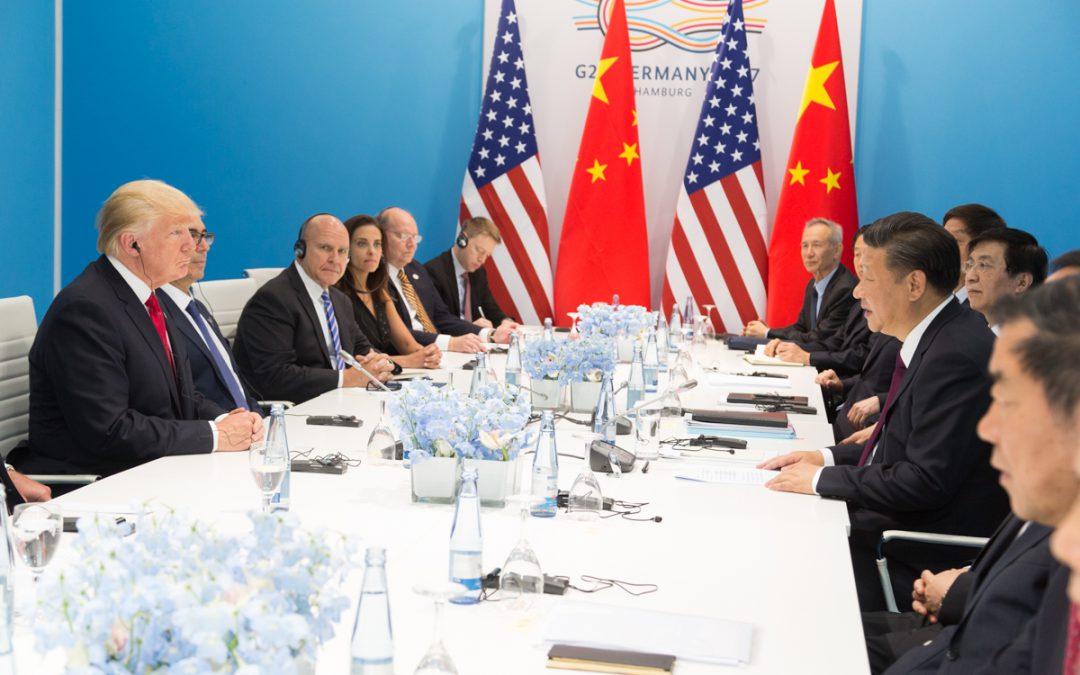Fulfilling a campaign promise, the Trump administration announced on Thursday plans to impose broad tariffs on Chinese imports, a sweeping move that could generate an estimated $60 billion a year from tariffs and penalties.
The action comes in response to alleged intellectual property theft by Chinese companies, often in apparent coordination with the government. The thefts range from items such as pirated movies, to technology, and software.
In his announcement, President Donald Trump railed against America’s trade deficit with China, citing what he contends are unfair trade practices.
“Any way you look at it, it is the largest deficit of any country in the history of our world,” he said. “We have a tremendous intellectual property theft situation going on.”
Trump’s move directs the U.S. Trade Representative to compile a list of goods and sectors to target with tariffs, which will then be subject to public comment for 30 days.
A 2017 report published by the Commission on the Theft of American Intellectual Property named China as the top culprit for stealing American intellectual property.
The bi-partisan commission “assesses that China remains the world’s principal IP infringer, driven by an industrial policy that continues to prioritize both acquisition and development of science and technology,” the commission said in a press release announcing the report.
The move comes just weeks after Trump announced tariffs on imports of steel and aluminum, triggering strong negative reaction by many U.S. trading partners, U.S. businesses and Republican “free-trade” leaders on Capitol Hill, including House Speaker Paul Ryan of Wisconsin.
Hua Chunying, a spokeswoman for the Chinese Foreign Ministry, said the country doesn’t want a trade war with the U.S., but warned it will not back down from one.
“China does not want to fight a trade war with anyone, but if one does force us to fight, first, we will not be afraid and second, we will not avoid,” she said at a news conference Wednesday. “If the U.S. side takes action that harms China’s interests, China will take resolute and necessary countermeasures and safeguard its own legitimate rights and interests.”
Trump’s latest tariff on China was met with skepticism from key business stakeholders across the country.
“Holding China accountable for refusing to follow global trading rules is important and necessary, but instead, the tariffs proposed by the administration will punish ordinary Americans for China’s violations,” said Matthew Shay, president and CEO of the National Retail Federation, a Washington-based trade association, in a statement Tuesday.
“We urge the administration to reconsider and instead work with our trading partners to enforce the rules and advance targeted trade remedies,” Shay added.
FedEx CEO Fred Smith was also critical of the proposed tariffs in an earnings call Tuesday.
“FedEx is concerned about the prospect of increased protectionist tariffs as history is shown repeatedly that protectionism is counterproductive to economic growth,” he said. “The better approach is to encourage open markets and free exchange of products and services and to reduce barriers to trade.”
Smith also said that the tariffs could offset financial benefits the company received from the tax break they received from Congress last year.

